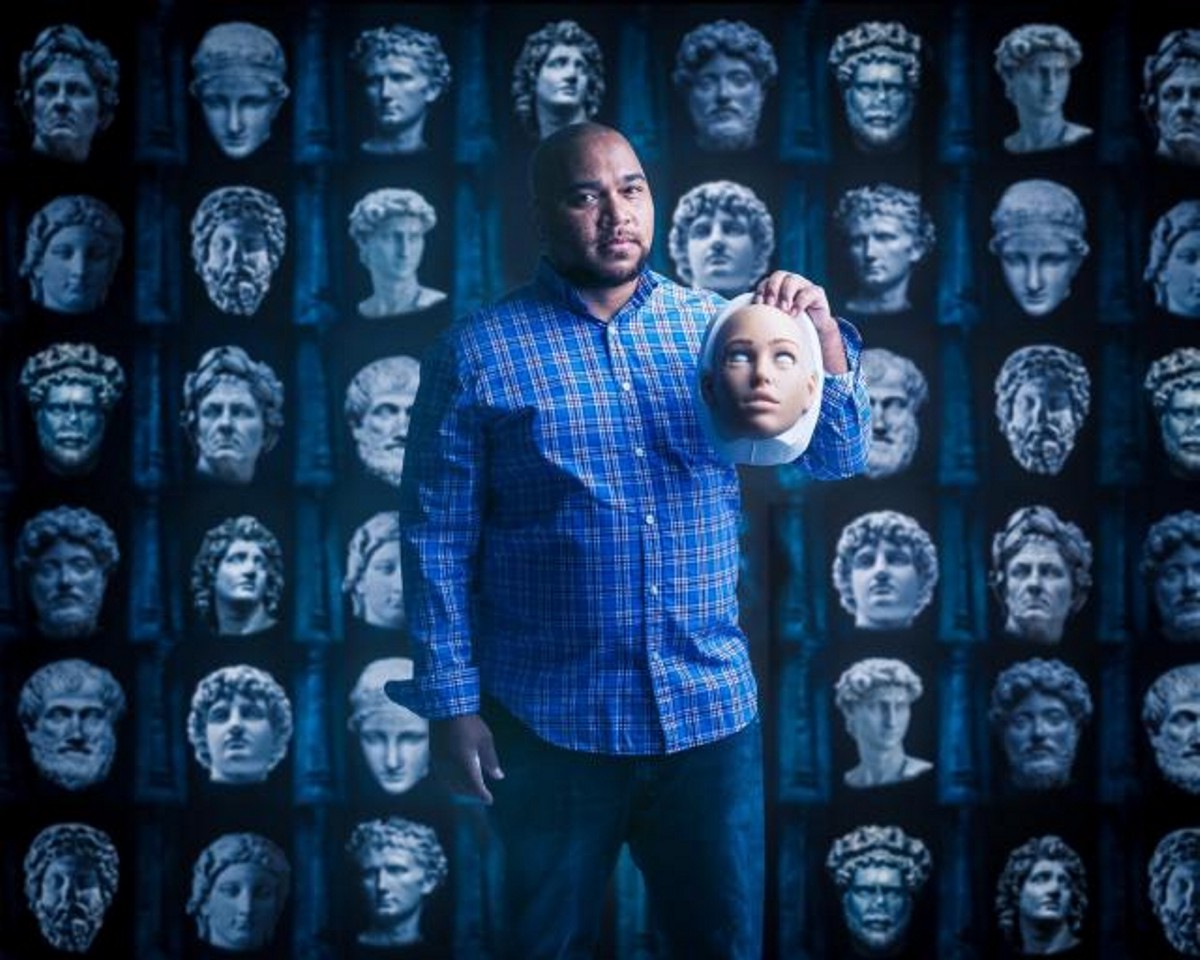The recent chaos that rocked the crypto space created doubts about the industry’s future and its ability to increase and improve adoption on all sides.
This led to a mass exodus of doubters who believe this is the beginning of the end for cryptocurrencies and their affiliated technologies.
There may be some truth to the assertions of the naysayers. On the one hand, cryptocurrency tokens have faced little or no regulatory scrutiny since they achieved critical mass.
On the other hand, their utility has not been a driving factor in increasing the adoption of these new technologies.
Tokenization provides a way out.
A recent mainstream event gives a few clues about what’s next.
Larry Fink Made a Bold Prophecy
At the last New York Times DealBook summit, BlackRock CEO Larry Fink made a few assertions and predictions about the crypto space.
Chief among them were predictions of the future of the crypto space and his version of what it holds.
“I believe the next generation for markets, the next generation for securities will be tokenization of securities. And if we can have that distributed ledger that we know every beneficial owner, every beneficial seller. We all have our code of who’s buying, who’s selling, instantaneous settlement. It changes the whole ecosystem.”, Larry said.
We reached out to experts in the industry who have given their insights.
Here are their nuggets!
Tokenization Offers Several Advantages
Despite the current issues surrounding the cryptospace, tokenization offers benefits that can create economic conditions that will aid market movements in several ways.
Dakota McDaniels, Co-Founder and Chief Product Officer at Pluto
“Tokenization has the potential to bring new value and liquidity to previously nontradable assets. The creation of on-chain markets for these assets should support the growth of crypto assets globally and a long-term bull market for digital assets in general.”
Tokenization will Unlock Asset Ownership and Management
One way tokenization will be a part of our lives is through asset ownership and management.
The associated costs of information systems have gone through the roof-security, flexibility, identification, and management of asset information systems have been way too costly to deploy and maintain.
Aaron Rafferty, CEO of Standard DAO and Co-Founder at BattlePACs
“Tokenization is truly a game-changer for blockchain technology and the future of asset ownership. It opens up new opportunities for ownership and investment, allowing retail investors to participate in investment classes that were previously only accessible to institutions. For example, Proof of Reserve technology enables companies like Paxos to provide transparent proof of ownership for physical commodities such as gold. We are already seeing the benefits of tokenization in industries such as retail, where companies like Lowe’s are using it to enhance security and reduce product theft.
In the world of funds, tokenization is revolutionizing the way that distributions and dividends are paid out, with solutions like JP Morgan’s Onyx providing a seamless experience for fund managers and investors alike. The decentralized finance (DeFi) movement has also shown us the potential of tokenization to remove intermediaries and enable global participation.
However, it’s important to note that tokenization is not without limitations. One major challenge is the need for regulatory clarity and framework, as the tokenization of assets raises important questions about ownership and liability. Additionally, the security of tokenized assets is a concern, as the decentralized nature of blockchain leaves it vulnerable to hacks and other forms of cybercrime.”
Related:Everything You Should Know About STO and STO Develpoment
The Economy of Value will Improve
One way businesses will take advantage of the tokenization boom will be through value addition.
Everyone loves a few extras when making purchases. Tokenization will boost value-driven business processes while increasing consumer loyalty simultaneously.
Timothy Tully, CEO at Zelcore
“We’re going to see tokenization for many different reasons. Tokenization in this context is the process of converting an asset or the ownership rights of an asset into a token. This creates an opportunity to control the entire or fractionalized ownership of the asset. Costs, control, greater access, and security are some of the areas where tokenization is going to have the greatest impact.
In the past six months, there has been an acceleration both publicly and in stealth mode. Many companies are working on tokenizing assets to increase access and as a potential cost-saving measure. Many tokens will have utility properties: gift cards, airline miles and other credit card cash-back rewards programs, stocks and securities, driver’s licenses, concert tickets, and essentially any one-of-a-kind item.
Others are exploring ways to tokenize ownership for assets like property or a hedge fund as a means of making them more widely available to more participants, and quicker and easier to buy into them. As the costs of assets and goods are driven up by inflation this type of fractionalized ownership becomes more attractive.
From a consumer perspective, tokenization means increased access and control of your assets. The public has witnessed Big Tech using clients’ private information in a way that promotes the company’s interests over the individual. Trust for large central authorities; Big Tech, Governments, and Big Banks is at an all-time low. Their control over individuals’ assets and data has reached the point on the pendulum where it has to swing back to the center or the individual side.
What “control” means here is having real choice and real power to decide what’s best for you –, your personal data, your private information, your assets. Your interests are better served when you are able to make your own decisions. The paradigm is shifting toward the idea that users should be in control, which Web3 and tokenization will allow. With that, Web3 is shaping up to be the driving force to swing the pendulum back to individual control and balance out what Big Tech is doing with user data and assets.”
Related: The Future of Money: The End of Cash and the Rise of Digital Currencies
Tokenization is Asset Digitization on Steroids
The knowledge economy will receive a boost with the expansion of asset tokenization driven by the emergence of new marketplaces that will interact autonomously with each other. These interactions won’t need human input per se.
Ruadhan O., Founder and Lead Developer at Seasonal Tokens
“Asset tokenization is inevitably going to be a big part of the future of crypto because it makes it possible for almost any asset to be traded instantly at near-zero cost. Real estate, intellectual property, and even inheritance rights can change ownership effortlessly. Tokenized stocks allow equities to be traded 24 hours a day, even when traditional stock exchanges are closed. It’s very likely that asset tokenization will fundamentally change the way that assets of all types are traded in the future.
One feature of tokenized assets that could become a problem in the future is that there’s no way to ensure that the owner of a token is a legal entity such as an individual or a corporation. Assets such as real estate or corporations could be acquired by autonomous AIs who trade online profitably and use cryptocurrency to rent the servers that they run on. Most of the scientific literature is privately-owned intellectual property, which, if tokenized, could be acquired by an AI who would have the power to deny humans electronic access to it.”
Artificial Intelligence will Play a Huge Role in the Process
The need for backends to drive interactions with tokenized assets will diminish as AI processes will continuously provide a “first come, first served” administration within several contexts. These contexts will give everyone a chance to make gains and increase profits for asset owners.
Vincent Peters CEO at Inheritance-AI
“Asset tokenization will lead to wider adoption of blockchain technology and crypto. As less speculative perspectives enter the blockchain conversation, we will see more meaningful use cases for the application of the blockchain. Some of the most prominent use cases envisioned are the tokenization of art and real estate. Tokenizing large ticket items such as real estate and fine art creates opportunities for retail investors in a way that traditional investment vehicles and markets don’t.”
Related: We Are Beginning The Age Of AI
While the crypto and blockchain space is experiencing a correction, tokenization will be a tool for providing value, increasing security, and enabling transparency across industries, marketplaces, and niches.
That is one more boost for cryptocurrency and blockchain adoption.
All Markets Can be Tokenized
The beauty of tokenization processes is that anything can be represented on blockchains and distributed ledgers. This opens a vista of opportunities for all kinds of creativity.
Prakash Somosundram, Co-Founder and CEO at Enjinstarter
“Asset tokenization is one of the best use cases for blockchain. With the right regulatory frameworks, such as those in place in Switzerland, tokenized assets can unlock opportunities that do not currently exist with their physical counterparts. Tokenized assets such as bonds, real-estate, and gold can facilitate trade, enable fractionalization, increase liquidity, reduce fraud risk, and provide unprecedented transparency.
One of the specific assets of interest is the carbon credit. The voluntary carbon market is known for being opaque, inefficient, and exclusive. There is no industry-accepted way to price credits, for example, and brokers exert disproportionate control over the entire process. This has, in some cases, led to fraudulent activity where credits are sold twice. It is for these reasons that carbon credits have yet to become their own asset class.
Asset tokenization makes this possible by ensuring transparency, both in terms of credit provenance and price, and providing the market infrastructure to facilitate the sale and immediate retirement of credits. A more transparent, efficient, and inclusive market means greater participation across the spectrum, from organizations and individuals looking to offset their emissions to projects focused on reforestation and preservation. This then becomes the foundation for mass adoption and a host of other asset management opportunities.
Asset tokenization can provide the same benefits to virtually any other physical asset. This is what makes it such an attractive proposition moving forward. It’s not just Web3 markets that can benefit, but all markets.”
Related: How Traders Make Predictions on the Crypto Market














